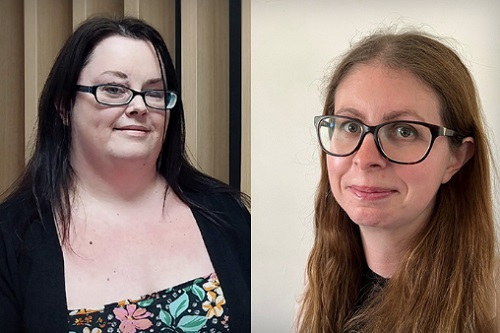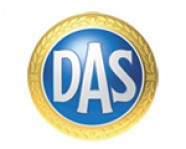Qualified One-Way Costs Shifting changes: The ATE Provider’s Perspective

Authored by DAS ATE Technical Supervisor Rebecca Squires and ATE Technician Jane Marigold (pictured)
At an initial glance, it could be viewed that the recent changes to QOCS may have a purely negative impact on ATE providers, given the increase in exposure now that Defendants costs are no longer capped at the level of the Claimant’s damages. In many respects this was the position that ATE insurers had originally anticipated with the introduction of QOCS although, as case law developed, it was evident that the teeth Defendants had expected to bite through LASPO had been weakened.
Since the Court of Appeal decision in Cartwright v Venduct Engineering Ltd. we have seen several cases where finalising settlement has become entrenched with some Defendants keen to continue to trial to obtain an Order thus allowing recovery of costs where a Part 36 offer has been accepted out of time, rather than reaching an earlier settlement. With the new changes, Part 36 offers will have the additional incentive that costs after the 21-day period can now (subject to contrary agreement) be enforced without the requirement of a Court Order, which will hopefully lead to a more reasonable approach towards settlement.
In addition, as the Defendant will not only be able to recover costs up to the damages cap but additionally up to the costs recoverable by the Claimant there may be more incentive for them to make Part 36 offers at an earlier stage. Part 36 offers, especially early ones, now present a more significant cost risks to claimants. If accepted out of time there is a risk that the claimants damages could be substantially reduced or even extinguished if the Defendants costs, past expiry of the offer, are greater that the damages and costs combined. Nuisance offers help no-one and it is hoped that Defendants will take a view that a realistic Part 36 offer, made at the appropriate time, will benefit everyone involved. We wait with expectation to see how behaviours adapt to the new regime.
ATE insurers will need to be more astute to the involvement of multiple defendants in particular the need to ensure that any order for costs separates out Defendants if the Claimant has lost against only one of them. In addition, we may want to be more involved in discussions where discontinuance against one Defendant may be considered. Overall, this may result in additional reporting although DAS always balances reporting against the experience of the law firm handling the case.
Recently announced changes to Fixed Recoverable Costs in cases under £100,000 will inevitably provide some protection against Defendants costs for cases falling in this bracket. ATE insurers will need time to assess the impact of this as against the increased exposure introduced through the changes to QOCS.
On a practical level, having two sets of QOCS rules could prove problematic and it seems likely these changes will generate satellite litigation. This in turn may increase overall exposure for ATE insurers and lengthen the life span of any cases that may be caught up in such litigation. Insurers will be keen to assess the impact of any increase in costs and/or delay in cases settling (in most cases the insurers premium is deferred and contingent upon the outcome of a case) on its underwriting models and ultimately pricing.
ATE insurance remains a powerful tool to protect access to justice and claimants’ damages, a fact many of our business partners have already recognised. DAS ATE policies will continue to cover Defendants’ costs and Claimant’s disbursements, up to the limit of indemnity, where there has been a failure to beat a Part 36 Offer, or an offer is accepted out of time. ATE insurers are uniquely placed to work with Solicitors to improve their understanding of costs shifting and ensure relevant protection is being offered where needed.
About DAS Group
The DAS UK Group comprises an insurance company (DAS Legal Expenses Insurance Company Ltd), a law firm (DAS Law), and an after the event (ATE) legal expenses division.
DAS UK introduced legal expenses insurance (LEI) in 1975, protecting individuals and businesses against the unforeseen costs involved in a legal dispute. In 2018 it wrote more than seven million policies.
The company offers a range of insurance and assistance add-on products suitable for landlords, homeowners, motorists, groups and business owners, while it’s after the event legal expenses insurance division offers civil litigation, clinical negligence and personal injury products. In 2013, DAS also acquired its own law firm – DAS Law – enabling it to leverage the firm’s expertise to provide its customers with access to legal advice and representation.
DAS UK is part of the ERGO Group, one of Europe’s largest insurance groups (the majority shareholder in ERGO is Munich Re, one of the world’s largest reinsurers).

